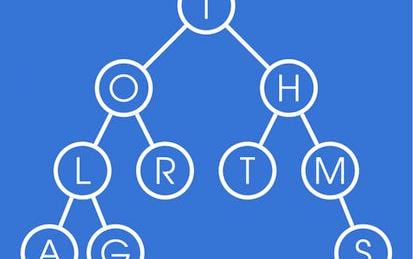

Our Courses

Introduction to Microsoft Azure Cloud Services
Whether you're just beginning to work with the cloud or you already have cloud experience and are new to Microsoft Azure, this course provides you with everything you need to get started. It introduces you to Microsoft Azure core concepts and services. You’ll learn the basics of cloud computing, its advantages, and how to choose the right Microsoft Azure solution for different business scenarios. You’ll use the Microsoft Azure portal and a sandbox to create and test Microsoft Azure resources at no cost to you.
-
Course by

-
 Self Paced
Self Paced
-
 10 hours
10 hours
-
 English
English

Big Data, Artificial Intelligence, and Ethics
This course gives you context and first-hand experience with the two major catalyzers of the computational science revolution: big data and artificial intelligence. With more than 99% of all mediated information in digital format and with 98% of the world population using digital technology, humanity produces an impressive digital footprint. In theory, this provides unprecedented opportunities to understand and shape society. In practice, the only way this information deluge can be processed is through using the same digital technologies that produced it.
-
Course by

-
 Self Paced
Self Paced
-
 12 hours
12 hours
-
 English
English

Distributed Computing with Spark SQL
This course is all about big data. It’s for students with SQL experience that want to take the next step on their data journey by learning distributed computing using Apache Spark. Students will gain a thorough understanding of this open-source standard for working with large datasets. Students will gain an understanding of the fundamentals of data analysis using SQL on Spark, setting the foundation for how to combine data with advanced analytics at scale and in production environments.
-
Course by

-
 14 hours
14 hours
-
 English
English

Introduction to Big Data with Spark and Hadoop
This self-paced IBM course will teach you all about big data! You will become familiar with the characteristics of big data and its application in big data analytics. You will also gain hands-on experience with big data processing tools like Apache Hadoop and Apache Spark. Bernard Marr defines big data as the digital trace that we are generating in this digital era. You will start the course by understanding what big data is and exploring how insights from big data can be harnessed for a variety of use cases.
-
Course by

-
 Self Paced
Self Paced
-
 24 hours
24 hours
-
 English
English

Data-driven Astronomy
Science is undergoing a data explosion, and astronomy is leading the way. Modern telescopes produce terabytes of data per observation, and the simulations required to model our observable Universe push supercomputers to their limits. To analyse this data scientists need to be able to think computationally to solve problems. In this course you will investigate the challenges of working with large datasets: how to implement algorithms that work; how to use databases to manage your data; and how to learn from your data with machine learning tools.
-
Course by

-
 Self Paced
Self Paced
-
 24 hours
24 hours
-
 English
English

Big Data Emerging Technologies
Every time you use Google to search something, every time you use Facebook, Twitter, Instagram or any other SNS (Social Network Service), and every time you buy from a recommended list of products on Amazon.com you are using a big data system. In addition, big data technology supports your smartphone, smartwatch, Alexa, Siri, and automobile (if it is a newer model) every day. The top companies in the world are currently using big data technology, and every company is in need of advanced big data technology support.
-
Course by

-
 Self Paced
Self Paced
-
 30 hours
30 hours
-
 English
English

Exploring and Preparing your Data with BigQuery
In this course, we see what the common challenges faced by data analysts are and how to solve them with the big data tools on Google Cloud. You’ll pick up some SQL along the way and become very familiar with using BigQuery and Dataprep to analyze and transform your datasets.
-
Course by

-
 Self Paced
Self Paced
-
 8 hours
8 hours
-
 English
English

Introduction to NoSQL Databases
Get started with NoSQL Databases with this beginner-friendly introductory course! This course will provide technical, hands-on knowledge of NoSQL databases and Database-as-a-Service (DaaS) offerings. With the advent of Big Data and agile development methodologies, NoSQL databases have gained a lot of relevance in the database landscape. Their main advantage is the ability to handle scalability and flexibility issues modern applications raise.
-
Course by

-
 Self Paced
Self Paced
-
 18 hours
18 hours
-
 English
English

The Social and Technical Context of Health Informatics
Improving health and healthcare institutions requires understanding of data and creation of interventions at the many levels at which health IT interact and affect the institution. These levels range from the external “world” in which the institution operates down to the specific technologies. Data scientists find that, when they aim at implementing their models in practice, it is the “socio” components that are both novel to them and mission critical to success.
-
Course by

-
 Self Paced
Self Paced
-
 9 hours
9 hours
-
 English
English

Google Cloud Big Data and Machine Learning Fundamentals
This course introduces the Google Cloud big data and machine learning products and services that support the data-to-AI lifecycle. It explores the processes, challenges, and benefits of building a big data pipeline and machine learning models with Vertex AI on Google Cloud.
-
Course by

-
 Self Paced
Self Paced
-
 10 hours
10 hours
-
 English
English

Process Mining: Data science in Action
Process mining is the missing link between model-based process analysis and data-oriented analysis techniques. Through concrete data sets and easy to use software the course provides data science knowledge that can be applied directly to analyze and improve processes in a variety of domains. Data science is the profession of the future, because organizations that are unable to use (big) data in a smart way will not survive. It is not sufficient to focus on data storage and data analysis. The data scientist also needs to relate data to process analysis.
-
Course by

-
 Self Paced
Self Paced
-
 22 hours
22 hours
-
 English
English

Foundations of Data Science: K-Means Clustering in Python
Organisations all around the world are using data to predict behaviours and extract valuable real-world insights to inform decisions. Managing and analysing big data has become an essential part of modern finance, retail, marketing, social science, development and research, medicine and government. This MOOC, designed by an academic team from Goldsmiths, University of London, will quickly introduce you to the core concepts of Data Science to prepare you for intermediate and advanced Data Science courses.
-
Course by

-
 Self Paced
Self Paced
-
 29 hours
29 hours
-
 English
English

Introduction to Data Engineering
Start your journey in one of the fastest growing professions today with this beginner-friendly Data Engineering course! You will be introduced to the core concepts, processes, and tools you need to know in order to get a foundational knowledge of data engineering. as well as the roles that Data Engineers, Data Scientists, and Data Analysts play in the ecosystem. You will begin this course by understanding what is data engineering as well as the roles that Data Engineers, Data Scientists, and Data Analysts play in this exciting field.
-
Course by

-
 Self Paced
Self Paced
-
 13 hours
13 hours
-
 English
English

Data Visualization in Excel
In an age now driven by "big data", we need to cut through the noise and present key information in a way that can be quickly consumed and acted upon making data visualization an increasingly important skill. Visualizations need to not only present data in an easy to understand and attractive way, but they must also provide context for the data, tell a story, achieving that fine balance between form and function. Excel has many rivals in this space, but it is still an excellent choice, particularly if it's where your data resides.
-
Course by

-
 Self Paced
Self Paced
-
 18 hours
18 hours
-
 English
English

Introduction to Big Data
Interested in increasing your knowledge of the Big Data landscape? This course is for those new to data science and interested in understanding why the Big Data Era has come to be. It is for those who want to become conversant with the terminology and the core concepts behind big data problems, applications, and systems. It is for those who want to start thinking about how Big Data might be useful in their business or career.
-
Course by

-
 Self Paced
Self Paced
-
 17 hours
17 hours
-
 English
English

Relational Database Support for Data Warehouses
Relational Database Support for Data Warehouses is the third course in the Data Warehousing for Business Intelligence specialization. In this course, you'll use analytical elements of SQL for answering business intelligence questions. You'll learn features of relational database management systems for managing summary data commonly used in business intelligence reporting. Because of the importance and difficulty of managing implementations of data warehouses, we'll also delve into storage architectures, scalable parallel processing, data governance, and big data impacts.
-
Course by

-
 Self Paced
Self Paced
-
 71 hours
71 hours
-
 English
English

Business Metrics for Data-Driven Companies
In this course, you will learn best practices for how to use data analytics to make any company more competitive and more profitable. You will be able to recognize the most critical business metrics and distinguish them from mere data. You’ll get a clear picture of the vital but different roles business analysts, business data analysts, and data scientists each play in various types of companies.
-
Course by

-
 Self Paced
Self Paced
-
 8 hours
8 hours
-
 English
English

Cloud Computing Applications, Part 2: Big Data and Applications in the Cloud
Welcome to the Cloud Computing Applications course, the second part of a two-course series designed to give you a comprehensive view on the world of Cloud Computing and Big Data! In this second course we continue Cloud Computing Applications by exploring how the Cloud opens up data analytics of huge volumes of data that are static or streamed at high velocity and represent an enormous variety of information. Cloud applications and data analytics represent a disruptive change in the ways that society is informed by, and uses information.
-
Course by

-
 Self Paced
Self Paced
-
 20 hours
20 hours
-
 English
English

Machine Learning With Big Data
Want to make sense of the volumes of data you have collected? Need to incorporate data-driven decisions into your process? This course provides an overview of machine learning techniques to explore, analyze, and leverage data.
-
Course by

-
 Self Paced
Self Paced
-
 22 hours
22 hours
-
 English
English

The Importance of Listening
In this second MOOC in the Social Marketing Specialization - "The Importance of Listening" - you will go deep into the Big Data of social and gain a more complete picture of what can be learned from interactions on social sites. You will be amazed at just how much information can be extracted from a single post, picture, or video.
-
Course by

-
 Self Paced
Self Paced
-
 8 hours
8 hours
-
 English
English

What is Social?
The “What Is Social?" MOOC is for business owners, executives, and marketing professionals who want to significantly improve their abilities to grow their social strategy using effective, proven methodologies. This hands on, "how to" program won’t just tell you how to grow your professional persona using social – you will actually do it! This course is the first in the six-course specialization, Social Media Marketing: How to Profit in a Digital World. While the course can be audited for free, paid learners will receive additional content beyond the course basics.
-
Course by

-
 Self Paced
Self Paced
-
 7 hours
7 hours
-
 English
English

Hadoop Platform and Application Framework
This course is for novice programmers or business people who would like to understand the core tools used to wrangle and analyze big data. With no prior experience, you will have the opportunity to walk through hands-on examples with Hadoop and Spark frameworks, two of the most common in the industry. You will be comfortable explaining the specific components and basic processes of the Hadoop architecture, software stack, and execution environment.
-
Course by

-
 Self Paced
Self Paced
-
 26 hours
26 hours
-
 English
English

Advanced Algorithms and Complexity
In previous courses of our online specialization you've learned the basic algorithms, and now you are ready to step into the area of more complex problems and algorithms to solve them. Advanced algorithms build upon basic ones and use new ideas. We will start with networks flows which are used in more typical applications such as optimal matchings, finding disjoint paths and flight scheduling as well as more surprising ones like image segmentation in computer vision.
-
Course by

-
 Self Paced
Self Paced
-
 27 hours
27 hours
-
 English
English

Cloud Computing Applications, Part 1: Cloud Systems and Infrastructure
Welcome to the Cloud Computing Applications course, the first part of a two-course series designed to give you a comprehensive view on the world of Cloud Computing and Big Data! In this first course we cover a multitude of technologies that comprise the modern concept of cloud computing.
-
Course by

-
 Self Paced
Self Paced
-
 15 hours
15 hours
-
 English
English

Big Data - Capstone Project
Welcome to the Capstone Project for Big Data! In this culminating project, you will build a big data ecosystem using tools and methods form the earlier courses in this specialization. You will analyze a data set simulating big data generated from a large number of users who are playing our imaginary game "Catch the Pink Flamingo". During the five week Capstone Project, you will walk through the typical big data science steps for acquiring, exploring, preparing, analyzing, and reporting.
-
Course by

-
 Self Paced
Self Paced
-
 21 hours
21 hours
-
 English
English



